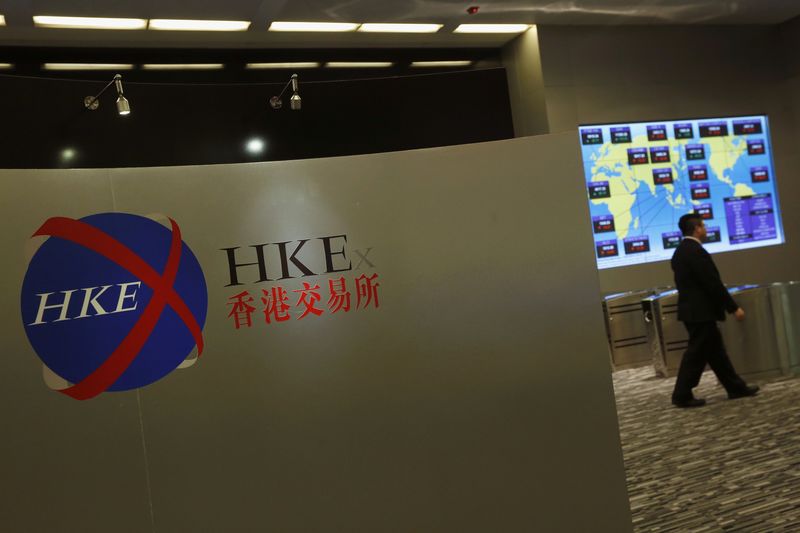This post was originally published on this site
https://i-invdn-com.investing.com/news/LYNXMPEB250CR_M.jpg
Investing.com– Hong Kong stocks surged on Wednesday, extending a run of recent gains amid increased speculation over a further loosening of the financial hub’s anti-COVID restrictions, while broader Asian markets fell as investors turned cautious ahead of key U.S. economic data this week.
The Hang Seng index was the best performer in Asia for a second consecutive session, rising 2.3% to a five-month high as media reports suggested that Hong Kong could announce its border reopening plan with the mainland by as soon as Thursday.
Hong Kong-listed Chinese property stocks were also among the best performers on the Hang Seng on expectations that the Chinese government will roll out more accommodative policies to help support the country’s beleaguered real estate market.
But uncertainty over China’s COVID-19 status weighed on local stocks, with the Shanghai Shenzhen CSI 300 and the Shanghai Composite indexes falling 0.2% and 0.1%, respectively. The country is grappling with an unprecedented spike in cases after it relaxed several restrictions in December.
Chinese President Xi Jinping also flagged challenges this year as the country aims to further scale back its anti-COVID measures.
Recent data showed that the Chinese economy is in dire straits, having been harangued by a series of lockdowns in 2022.
Broader Asian markets fell as caution kicked in before the release of the minutes of the Federal Reserve’s December meeting, which is expected to provide more cues on U.S. monetary policy.
Markets will be watching to see if more policymakers support a slower pace of rate hikes, amid a growing number of signs that inflation has likely peaked.
Focus is also on the release of key business activity and nonfarm payrolls data this week, the latter of which is likely to factor into changes to U.S. monetary policy.
Rising U.S. interest rates were among the biggest weights on Asian stocks in 2022, as the allure of high-risk assets decreased amid rising bond yields.
Japan’s Nikkei 225 fell 1.4% in its first trading session of the year after data showed the country’s manufacturing sector shrank for a second consecutive month in December.
India’s Nifty 50 and BSE Sensex 30 indexes fell 0.5% each, while Indonesian stocks led losses across Southeast Asia with a 0.2% decline.
Other Southeast Asian stocks fared far better, with Philippine shares rallying as much as 2.1%, while Malaysian stocks added 1.7%.

